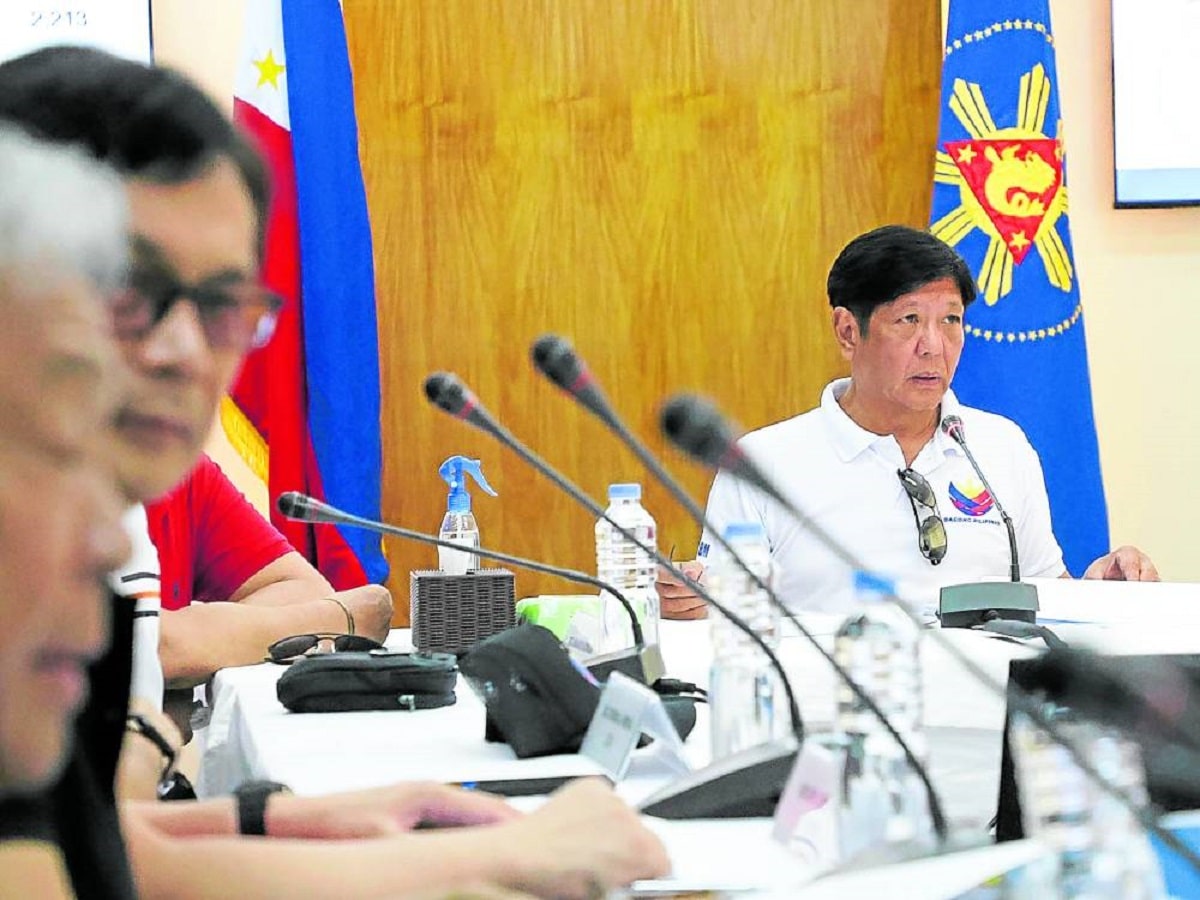
OUT-OF-TOWN BRIEFING President Marcos presides over a disaster briefing in San Mateo, Rizal, on Friday. —MARIANNE BERMUDEZ
LUCENA CITY—Despite the troubles brought about by the supertyphoon and enhanced southwest monsoon, President Marcos urged Filipinos and government officials to intensify their preparations for the La Niña phenomenon.
“We have to prepare for the next flood. This is the first typhoon within the La Niña phenomenon. There’s a long way to go. So, we have to prepare. Let’s think about preparing,” Mr. Marcos told national and Quezon government officials at a briefing held in Mauban town on Friday morning.
Presidential inspection
Marcos visited Mauban, a coastal town facing Lamon Bay in the Pacific Ocean, as part of his ocular inspection in typhoon-hit areas.
He was met by Quezon Gov. Angelina Tan, Mauban Mayor Erwin Pastrana and Quezon Representatives Mark Enverga, David Suarez, Reynante Arrogancia and Mike Tan.
The President was briefed by Quezon officials on the effects of Supertyphoon “Carina” (international name: Gaemi) and Typhoon “Aghon” (international name: Ewiniar) that badly hit the province last May.
During the briefing, Marcos agreed with the reports that some areas in the typhoon-affected parts of the country have experienced flooding for the first time.
“It’s the same for us. Some areas didn’t experience flooding. We knew where the water would go, where it would flood. But now, we don’t. Everything has changed,” he said.
“That’s why we have to figure out. Why did it change? Where is the water coming from? Where is it passing through? What can we do to block it, at least impound it or whatever the plan will be?” he said.
Change mindsets
Mr. Marcos told government officials that the rampaging flood water knows no boundaries.
“The flood control has to be a big plan. It will cross three, four, five regions. It can’t be just one town here, one town there. That’s why we’re trying to assess what are the significant changes,” he said.
He noted that the flood control projects of the government are in response to past flooding incidents.
READ: Marcos: People should learn as climate change, trash caused flooding
“But things have changed. Number one, the sea level has risen. The sea is higher now than before. So when there’s high tide, the water overflows the dikes and flood control systems. That’s why we need to reassess those,” he said.
“We have to understand the flow of the water and how to manage it so it does not flood the productive areas, households, residential communities and destroy the roads and other infrastructures. This has to be a national plan,” he said.
Mr. Marcos also inspected the damage to the concrete sea wall caused by the surging waves during the height of Carina’s fury.
Of the five provinces in the Calabarzon (Cavite, Laguna, Batangas, Rizal, Quezon) region, Quezon was the least hit by the typhoon, except for the Polillo group of islands, and only sustained minor damage compared with the other four provinces.